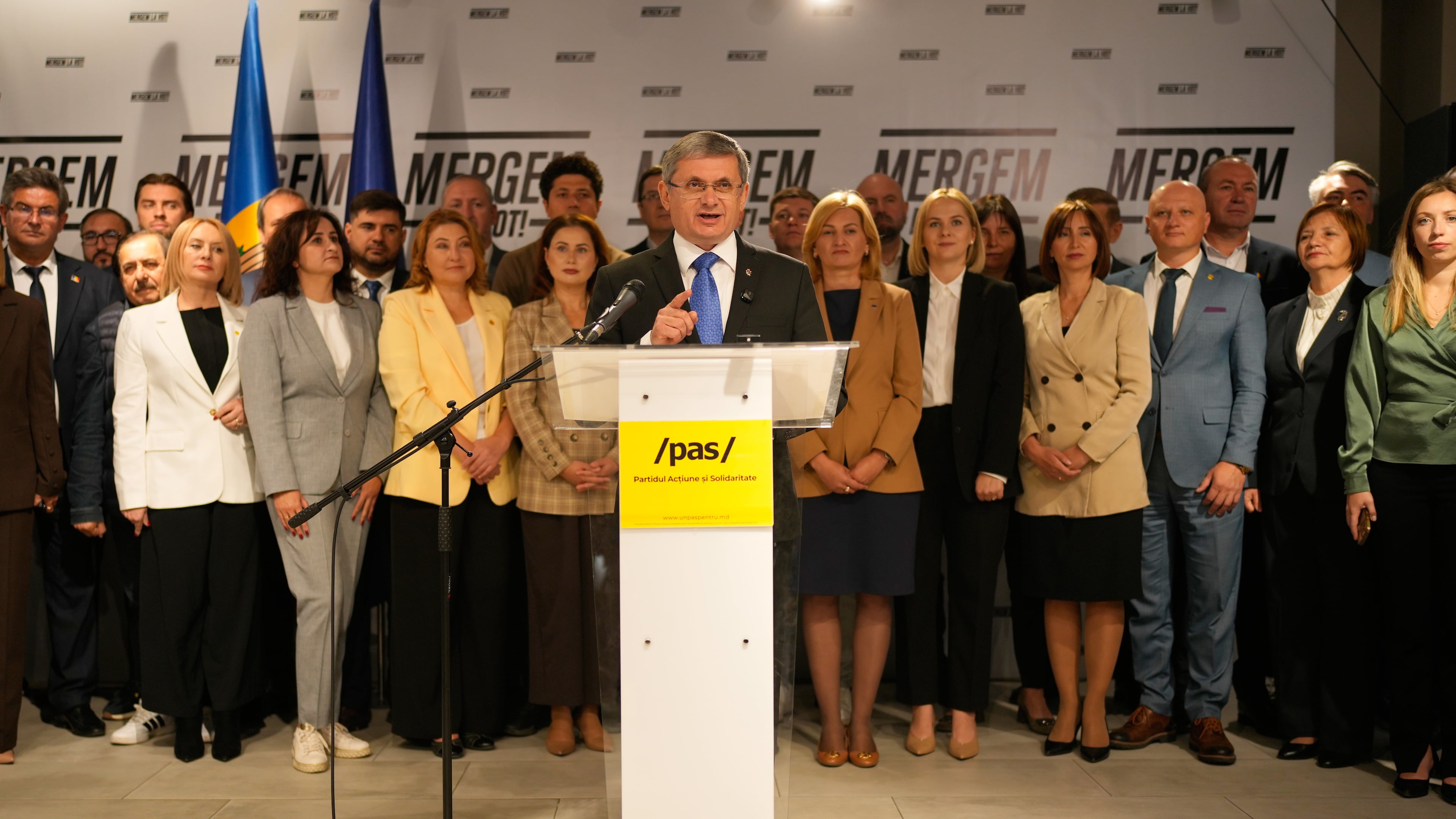Moldova’s pro-EU party wins clear parliamentary majority, defeating pro-Russian groups

CHISINAU, Moldova (AP) — Moldovans gave the country's pro-Western governing party a clear parliamentary majority in a weekend election, defeating pro-Russian groups in a vote widely viewed as a stark choice between East and West.
European leaders on Monday hailed Moldovans for re-affirming their commitment to a Western path and future membership in the European Union in the face of alleged Russian interference. The county is small in size and population but with outsized geopolitical importance.
“You made your choice clear: Europe. Democracy. Freedom,” European Commission President Ursula von der Leyen said in a post on X. "No attempt to sow fear or division could break your resolve.”
Landlocked between war-torn Ukraine and EU and NATO member Romania, Moldova was a Soviet republic until it proclaimed independence in 1991. In recent years it has taken a clear Westward path, turning the country into a geopolitical battleground between Russia and Europe.
The outcome of Sunday’s high-stakes ballot was noteworthy considering Moldovan authorities’ repeated claims that Russia was conducting a vast “hybrid war” to try to sway the outcome and seize power in Chisinau. Moldova applied to join the EU in 2022 in the wake of Russia’s full-scale invasion of Ukraine, and was granted candidate status that year. Brussels agreed to open accession negotiations last year.
The election results
With nearly all polling station reports counted on Monday, electoral data showed the pro-EU Party of Action and Solidarity, or PAS, securing 50.1% of the vote, while the pro-Russian Patriotic Electoral Bloc won 24.2%. The Russia-friendly Alternativa Bloc came third, followed by the populist Our Party. The right-wing Democracy at Home party also won enough votes to enter parliament.
The tense ballot Sunday pitted the governing PAS against several Russia-friendly opponents but no viable pro-European partners. Electoral data indicate the party will hold a clear majority of about 55 of the 101 seats in the legislature.
At the PAS campaign headquarters on Monday morning in the capital Chisinau, party leader Igor Grosu described the election as another battle against “enemies of our country that once seemed impossible to defeat,” saying the race was a "final battle for the future.”
“It was not only PAS that won these elections, it was the people who won,” he said. “The Russian Federation threw into battle everything it had that was most vile — mountains of money, mountains of lies, mountains of illegalities. It used criminals to try to turn our entire country into a haven for crime. It filled everything with hatred.”
Building a new government
After a legislative election, Moldova’s president nominates a prime minister, generally from the leading party or bloc, which can then try to form a new government. A proposed government then needs parliamentary approval.
It is considered likely that President Maia Sandu, who founded PAS in 2016, will opt for some continuity by once again nominating pro-Western Prime Minister Dorin Recean, an economist who has steered Moldova’s government through multiple crises since 2023. Recean has also previously served as Sandu’s defense and security adviser.
Speaking to reporters at the PAS campaign building, Recean said Moldovans "demonstrated that their freedom is priceless and their freedom cannot be bought, their freedom cannot be influenced by Russia’s propaganda and scaremongering.”
“The major task right now is to bring back the society together, because what Russia achieved, is to produce a lot of tension and division in society,” he added.
The alleged Russian schemes included orchestrating a large-scale vote-buying scheme, conducting more than 1,000 cyberattacks on critical government infrastructure so far this year, a plan to incite riots around Sunday’s election, and a sprawling disinformation campaign online to sway voters.
Ukrainian President Volodymyr Zelenskyy said he had spoken to President Sandu on the phone and congratulated her on what he called “a very important victory” for Moldova.
“Russian subversion, constant disinformation – none of this worked," Zelenskyy said.
Bomb threats and cyberattacks on election day
Election day was dogged by a string of incidents, ranging from bomb threats at multiple polling stations abroad to cyberattacks on electoral and government infrastructure, voters photographing their ballots and some being illegally transported to polling stations. Three people were also detained, suspected of plotting to cause unrest after the vote.
Igor Dodon, a former president and a member of the pro-Russian Patriotic Electoral Bloc, called for a protest in front of the Parliament building on Monday after alleging, without presenting any evidence, that the ruling PAS meddled with the vote.
PAS campaigned on a pledge to continue Moldova’s path toward EU membership by signing an accession treaty to the 27-nation bloc by 2028, doubling incomes, modernizing infrastructure, and fighting corruption.
An unambiguous victory
Cristian Cantir, a Moldovan associate professor of international relations at Oakland University in Michigan, told The Associated Press that PAS’s victory is “a clear win for pro-European forces in Moldova, which will be able to ensure continuity in the next few years in the pursuit of their ultimate goal of EU integration.”
“A PAS majority saves the party from having to form a coalition that would have most likely been unstable and would have slowed down the pace of reforms to join the EU,” he said but added: “Moldova will continue to be in a difficult geopolitical environment characterized by Russia’s attempts to pull it back into its sphere of influence.”
Some 1.6 million people, or about 52.1% of eligible voters cast ballots, according to the Central Electoral Commission, with 280,000 of them coming from votes in polling stations set up abroad.
The Kremlin on Monday said “hundreds of thousands” of Moldovans living in Russia were unable to vote in the election due to an alleged lack of polling stations set up in the country. Kremlin spokesperson Dmitry Peskov said it was "obviously insufficient and couldn’t give everyone the opportunity to vote,” without providing further details.
___
Katie Marie Davies contributed to this report from Manchester, U.K.
More Stories
The Latest

